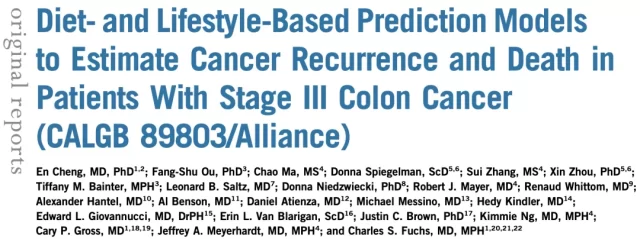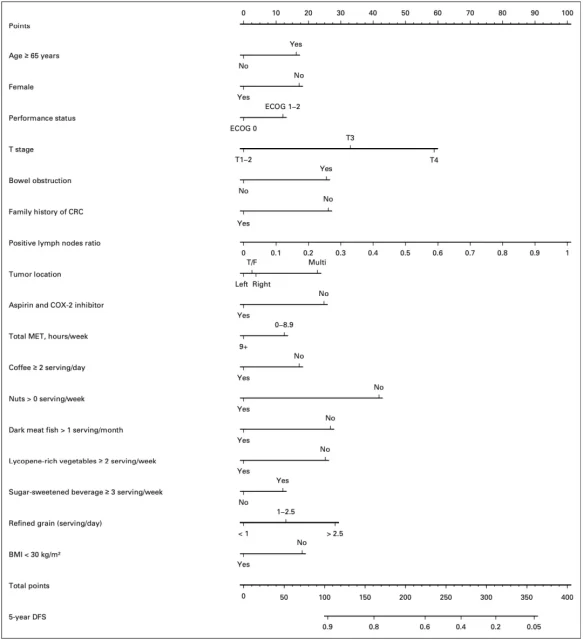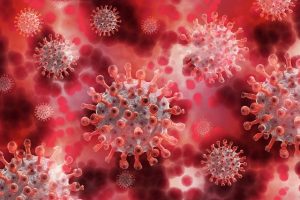JCO: Nuts and more beneficial for advanced bowel cancer patients
- Mifepristone: A Safe and Effective Abortion Option Amidst Controversy
- Asbestos Detected in Buildings Damaged in Ukraine: Analyzed by Japanese Company
- New Ocrevus Subcutaneous Injection Therapy Shows Promising Results in Multiple Sclerosis Treatmen
- Dutch Man Infected with COVID-19 for 613 Days Dies: Accumulating Over 50 Virus Mutations
- Engineered Soybeans with Pig Protein: A Promising Alternative or Pandora’s Dish?
- Severe Fever with Thrombocytopenia Syndrome (SFTS): A Tick-Borne Threat with High Mortality
JCO: Nuts and more beneficial for advanced bowel cancer patients
- Red Yeast Rice Scare Grips Japan: Over 114 Hospitalized and 5 Deaths
- Long COVID Brain Fog: Blood-Brain Barrier Damage and Persistent Inflammation
- FDA has mandated a top-level black box warning for all marketed CAR-T therapies
- Can people with high blood pressure eat peanuts?
- What is the difference between dopamine and dobutamine?
- How long can the patient live after heart stent surgery?
JCO: Nuts and more beneficial for advanced bowel cancer patients.
Surgery and adjuvant chemotherapy have indeed improved the 5-year overall survival (OS) rate of colon cancer patients over the past few decades [1], but cancer recurrence occurs in about 36% of patients with stage III colon cancer [2, 3]. To reduce cancer recurrence and mortality and improve patient outcomes, there is an urgent need to develop new predictive models.
Currently, models for predicting survival outcomes in patients with stage III colon cancer rely on clinical and pathological features such as age, gender, lymph node positivity, and T stage [4,5]. Recently, studies have found that diet and lifestyle may significantly affect the risk of colon cancer recurrence and death [6,7], so will adding the two to the prediction model improve the accuracy of the model?
Recently, a research team led by Charles S. Fuchs of Yale School of Public Health published important research results in the Journal of Clinical Oncology [8].
They found that adding dietary and lifestyle factors to the prediction model of clinical and pathological characteristics significantly improved the performance of the prediction model , i.e., the disease-free survival (DFS) prediction model agreement index improved from 0.64 to 0.69 , and the OS prediction model from 0.67 increased to 0.71 ; additionally, adding favorable dietary and lifestyle factors to the model significantly improved 5-year DFS and OS rates in all patients.
This result could benefit clinicians in personalizing survival predictions for patients, prompting patients to make dietary and lifestyle changes to reduce the risk of cancer recurrence and death .

▲ Screenshot of the homepage of the paper
The 1024 patients with stage III colon cancer involved in this study by Fuchs’ team were all from the Oncology Clinical Trials Consortium 89803 study. All patients received adjuvant drug therapy and their clinical characteristics were collected. In addition, during adjuvant therapy and 6-8 months after completion of treatment, information on patient demographics, drug use, family history, diet, and lifestyle were collected through questionnaires.
During a median follow-up of up to 7.3 years, the Fuchs team observed 311 deaths, 350 relapses, and 394 DFS status. The median age of these patients was 60 years, 43.8% were female, and 88.8% were white.
To build a more accurate predictive model, the researchers combined existing research findings and incorporated the following dietary and lifestyle factors into the model, including coffee, nuts, dark meat fish, sugar-sweetened beverages, refined grains, lycopene-rich vegetables, aspirin and COX-2 inhibitor use, physical activity, predicted 25-hydroxyvitamin D score, smoking, and BMI [9-11].
The researchers found that aspirin and COX-2 inhibitor use, coffee, nuts , dark fish , lycopene-rich vegetables, and BMI were all significantly associated with DFS; while physical activity, nuts , dark fish and BMI was significantly associated with OS .

▲ DFS prediction model nomogram
Next, the Fuchs team evaluated the performance of the predictive model, and they found that when dietary and lifestyle factors were added to the predictive model, the agreement index of the DFS predictive model improved from 0.64 (95% CI, 0.62-0.67) to 0.69 (95% CI) CI, 0.67-0.72), the OS prediction model improved from 0.67 (95% CI, 0.64-0.70) to 0.71 (95% CI, 0.69-0.75), and the performance of both models was significantly improved .
In addition, the Fuchs team performed further external validation of both models with another adjuvant chemotherapy trial (CALGB/SWOG 80702, including 2526 patients with stage III colon cancer), both with good identification and calibration performance.
Next, the Fuchs team analyzed the five-year predicted DFS and OS rates, as well as the RR of cancer recurrence and death. Based on data on clinical and pathological characteristics, they first divided patients into three categories: good risk, average risk, and poor risk.
The results showed that adding favorable dietary and lifestyle factors would significantly improve DFS rates compared to including clinical and pathological features alone . Among them, good risk patients increased by 6.3%, average risk patients increased by 21.4%, and poor risk patients increased by 42.6% .
In contrast, adding unfavorable dietary and lifestyle factors reduced DFS by 24.3% in good-risk patients, 46.9% in average-risk patients, and 2.1% in poor-risk patients, increasing the RR to 3.69 for colon cancer recurrence or death (95). % CI, 2.71-5.12); the five-year predicted OS rate and DFS rate of patients are the same, but the RR range is larger.
These results suggest that maintaining a favorable diet and lifestyle can improve patient survival and reduce the risk of cancer recurrence and death .

▲ Five-year predicted DFS and OS rates in patients with different clinical, pathological, dietary and lifestyle characteristics
Notably, the predictive models in this study did not take into account prognostic biomarkers, which warrants further study.
Second, predictive models do not reflect recent breakthroughs in colon cancer treatment and may underestimate survival. In addition, the population of this study was only patients with stage III colon cancer.
It is necessary to further evaluate whether the predictive model of adding dietary and lifestyle factors is applicable to the population of other stages of colon cancer.
In conclusion, a predictive model based on dietary and lifestyle factors can more effectively predict the risk of cancer recurrence and death in patients with stage III colon cancer.
references
[1] Akagi T, Inomata M. Essential advances in surgical and adjuvant therapies for colorectal cancer 2018-2019. Ann Gastroenterol Surg. 2020;4(1):39-46. Published 2020 Jan 28. doi:10.1002/ags3.12307
[2] Böckelman C, Engelmann BE, Kaprio T, Hansen TF, Glimelius B. Risk of recurrence in patients with colon cancer stage II and III: a systematic review and meta-analysis of recent literature. Acta Oncol. 2015;54(1):5-16. doi:10.3109/0284186X.2014.975839
[3] Osterman E, Glimelius B. Recurrence Risk After Up-to-Date Colon Cancer Staging, Surgery, and Pathology: Analysis of the Entire Swedish Population [published correction appears in Dis Colon Rectum. 2020 Mar;63(3):e36-e37]. Dis Colon Rectum. 2018;61(9):1016-1025. doi:10.1097/DCR.0000000000001158
[4] Valentini V, van Stiphout RG, Lammering G, et al. Nomograms for predicting local recurrence, distant metastases, and overall survival for patients with locally advanced rectal cancer on the basis of European randomized clinical trials. J Clin Oncol. 2011;29(23):3163-3172. doi:10.1200/JCO.2010.33.1595
[5] He Y, Ong Y, Li X, et al. Performance of prediction models on survival outcomes of colorectal cancer with surgical resection: A systematic review and meta-analysis. Surg Oncol. 2019;29:196-202. doi:10.1016/j.suronc.2019.05.014
[6] Rock CL, Doyle C, Demark-Wahnefried W, et al. Nutrition and physical activity guidelines for cancer survivors [published correction appears in CA Cancer J Clin. 2013 May;63(3):215]. CA Cancer J Clin. 2012;62(4):243-274. doi:10.3322/caac.21142
[7] Van Blarigan EL, Meyerhardt JA. Role of physical activity and diet after colorectal cancer diagnosis. J Clin Oncol. 2015;33(16):1825-1834. doi:10.1200/JCO.2014.59.7799
[8] Cheng E, Ou FS, Ma C, et al. Diet- and Lifestyle-Based Prediction Models to Estimate Cancer Recurrence and Death in Patients With Stage III Colon Cancer (CALGB 89803/Alliance) [published online ahead of print, 2022 Jan 7]. J Clin Oncol. 2022;JCO2101784. doi:10.1200/JCO.21.01784
[9] Guercio BJ, Sato K, Niedzwiecki D, et al. Coffee Intake, Recurrence, and Mortality in Stage III Colon Cancer: Results From CALGB 89803 (Alliance). J Clin Oncol. 2015;33(31):3598-3607. doi:10.1200/JCO.2015.61.5062
[10] Fadelu T, Zhang S, Niedzwiecki D, et al. Nut Consumption and Survival in Patients With Stage III Colon Cancer: Results From CALGB 89803 (Alliance). J Clin Oncol. 2018;36(11):1112-1120. doi:10.1200/JCO.2017.75.5413
[11] Ng K, Meyerhardt JA, Chan AT, et al. Aspirin and COX-2 inhibitor use in patients with stage III colon cancer. J Natl Cancer Inst. 2014;107(1):345. Published 2014 Nov 27. doi:10.1093/jnci/dju345
JCO: Nuts and more beneficial for advanced bowel cancer patients
(source:internet, reference only)
Disclaimer of medicaltrend.org
Important Note: The information provided is for informational purposes only and should not be considered as medical advice.



